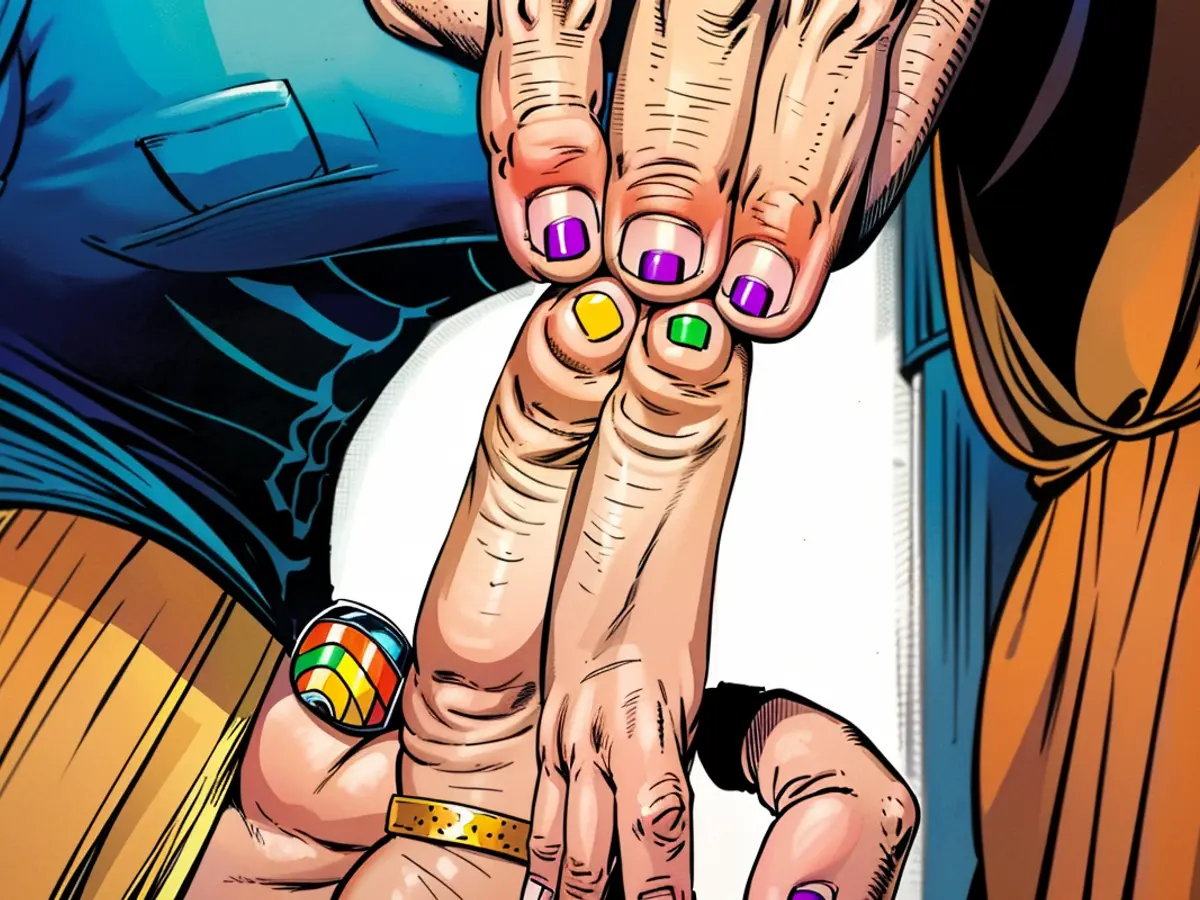China’s LGBTQ+ community celebrates rare scenes from Paris Olympics. But the internet is divided
These are among the images that France, the organizer of the Paris 2024 Olympics, presented to the world during the opening ceremony last week.
In China, the scenes have become a rare point of celebration for the LGBTQ+ community. They were beamed live across hundreds of millions of television screens by the country’s state broadcaster – unimpeded by the usual censorship that blocks any content depicting same-sex relationships.
China has cracked down hard on its LGBTQ+ movement under leader Xi Jinping, who has adopted a more authoritarian, socially conservative and patriarchal vision for the country. Support groups have been forced to disband, with activists harassed by police, pride parades cancelled and films and TV shows featuring same-sex themes banned.
The clampdown has made it all the more striking when scenes of gay men and drag queens from the Paris Olympics opening ceremony made it onto Chinese state broadcaster CCTV. On social media site Weibo, the “#Paris opening ceremony is really cool# hashtag has generated more than 600 million views over the past four days.
Ken Huang, 26, who is gay and lives in Beijing, said it felt like “an unrealistic dream” when the scene came up.
“I burst into big laughs first. I was like ‘Well, every dog has his day!’ Then I quickly took a photo and sent it to my friends who were watching the live broadcast, and quickly posted it on social media,” he said.

Many others marveled at what they saw. “Those who didn’t stay up late to watch the Olympic opening ceremony tonight missed out big time. They missed the once-in-a-lifetime opportunity to see a gay kiss and a threesome on CCTV,” a Weibo user from Shanghai wrote during the live broadcast of the ceremony in the early Saturday.
In many parts of the world, the ceremony’s celebration of diversity and inclusion has sparked controversy and backlash. Olympics officials apologized on Sunday after a scene featuring drag queens and a trans model evoking Leonardo da Vinci’s The Last Supper infuriated Christian groups - although the director of the opening ceremony said the famous mural wasn’t the inspiration for the scene.
In China, where sexual minorities still face widespread discrimination and are viewed as a potential political and moral threat by the ruling Communist Party, it also drew a divisive response.
Within hours, comments about the ceremony exploded on popular Chinese social media site Weibo, with some praising French progressiveness.
“In a truly diverse and inclusive society, everyone has the right to freely explore and enjoy sex without being restricted by society’s taboos and prejudices. This is the real meaning of this scene,” one popular user who has more than 380,000 followers wrote.
But many others decry what they see as the glorification of sexual minorities.
“The LGBTQ+ elements are the failure of all failures. The Olympics are a venue for competitive sports and for the display of sportsmanship. And yet, these demons and ghosts were shown ... encouraged by all kinds of flattery,” the person, also widely followed by 986,000 fans, wrote.
#Paris opening ceremony is really cool#
The ceremony remained the top trending topic on Weibo for more than 15 hours starting Saturday. Experts said the burst of enthusiasm may have been driven by what Chinese viewers consider a novelty.
“Representations of diverse gender and sexualities have been relatively limited because of regulations in mainland China,” said Suen Yiu-tung, an associate professor of gender studies at the Chinese University of Hong Kong.
“The audience may find such direct presentations of LGBTQ+ elements on TV, albeit relatively common in other parts of the world, rather foreign to them,” he said.

Suen said some in China yearn for the same level of progressiveness.
“To be able to see scenes that discomfort countless conservative people on a CCTV live broadcast, to see feminism that refuses to be silenced, is enough to give a moment of freedom to the soul,” a Weibo user wrote.
“In this world full of pressure, there are still French people shouting for love and freedom. This is the chaotic and beautiful art of France.”
Crackdown on social movements
While non-government organizations and activists have managed to drive incremental changes in the public perception of sexual minorities through health campaigns, the space for civil society has shrunk drastically in the past decade with LGBTQ+ groups facing wider crackdowns, according to critics and scholars.
In 2020, Shanghai Pride, China’s longest-running celebration, had to be cancelled abruptly due to mounting pressure from local authorities.
The following year, the country’s most popular messaging app WeChat shut down dozens of LGBTQ+ accounts run by university students, in one of the most widespread and coordinated acts of censorship targeting sexual minorities the country had seen in decades.
State censorship has also taken aim at other areas, including a ban on women’s cleavage on TV. China’s top media regulator issued new guidelines in 2016 to prohibit TV shows that promote “Western lifestyles.”
Suen explained that the backlash is partly due to Beijing’s campaign to portray expressions of diverse genders and sexualities as “foreign.”
“These Western ideas are not advanced, but rather backwards,” one Weibo user said wrote on Sunday, complaining that France has “forced” ideas like diversity on viewers.
Other users were simply stunned by how the ceremony managed to bypass China’s rigorous censorship, putting the state broadcaster in an awkward position.
Netizens created hashtag #CCTV’s narrators have gone silent# after commentators providing live analysis during the live streaming stopped abruptly when the LGBTQ+ scenes were broadcast.
“It may well have been the most boundary-pushing live broadcast CCTV has ever done,” one user noted on Weibo.
In contrast to China's strict policies towards LGBTQ+ representation, the Paris Olympics opening ceremony was broadcast on Chinese state broadcaster CCTV, featuring scenes of gay men and drag queens, sparking a divisive response among viewers. Worldwide, the ceremony's celebration of diversity and inclusion has triggered controversy and backlash, with Olympics officials apologizing for certain scenes that offended Christian groups.







